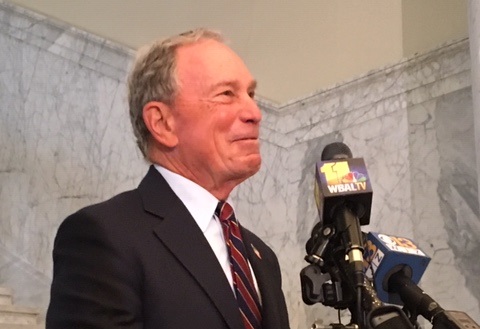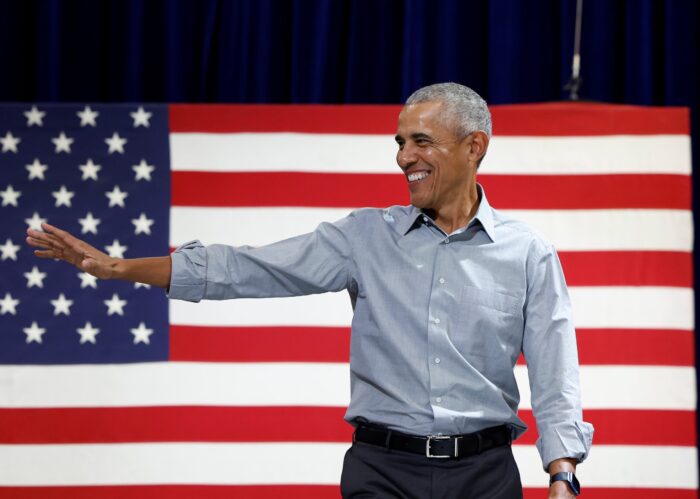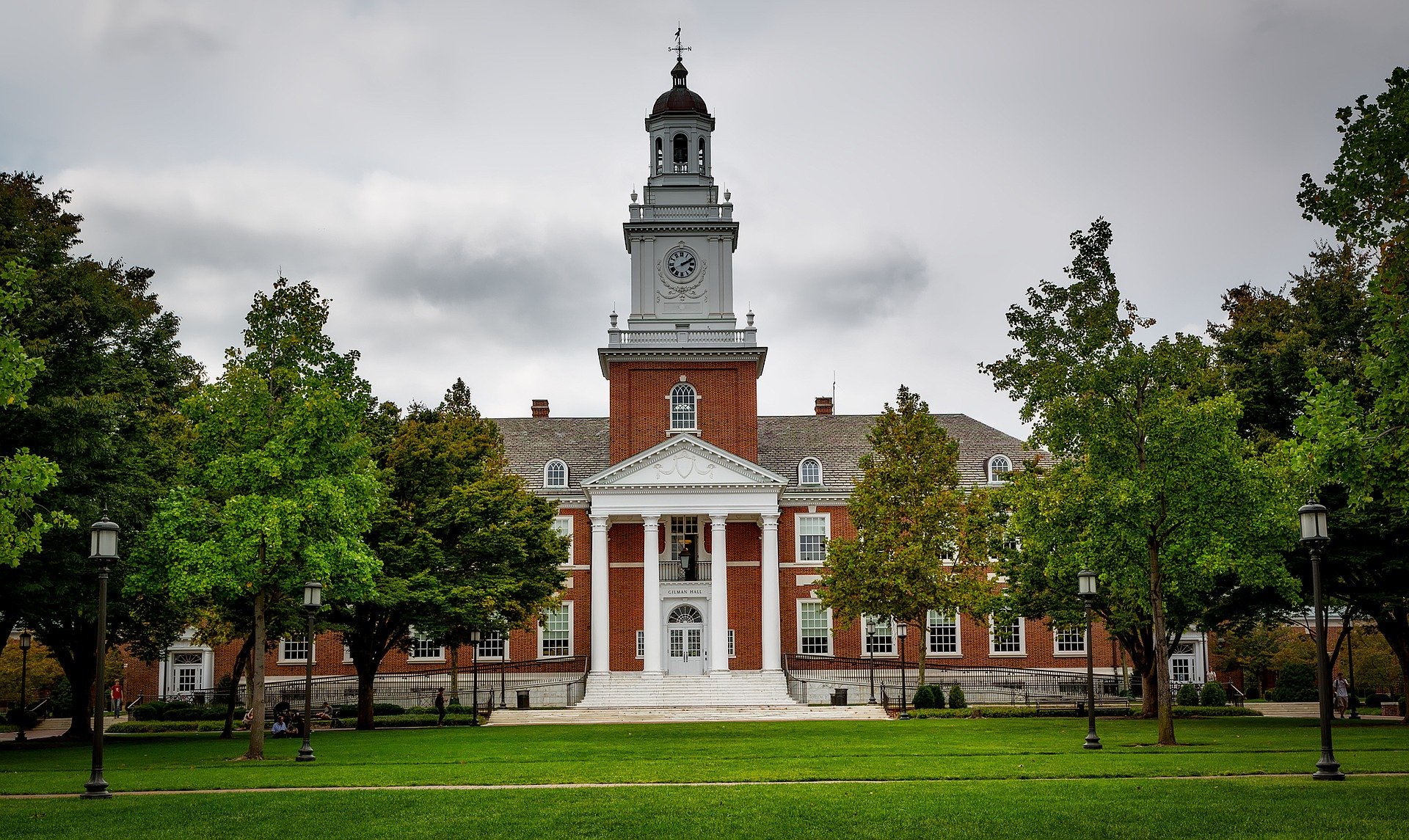Opinion: Nonprofits Should Not Shy Away From Bloomberg Funding During Pandemic

Michael Bloomberg’s candidacy for the Democratic presidential nomination brought about a broad realization: a lot of people dislike Michael Bloomberg.
Much of the Right dislikes him because of his staunch opposition to President Trump. Much of the Left views him as a nondisclosure agreement-wielding billionaire who tried to buy a nomination. In a polarized culture, which may view any connection to Bloomberg as problematic, this presents a potential issue for the nonprofits doing vital work that depend on his financial support.
Despite the valid criticisms of Bloomberg, nonprofits should openly accept his funding. With the impacts of COVID-19 heightening the urgent need for philanthropy, as well as creating uncertainty for many charitable funding sources, we would do ourselves and the nonprofit sector a disservice by creating a stigma around accepting Bloomberg’s money.
Bloomberg’s presidential candidacy thrust troublesome aspects of his past into the spotlight. This includes discriminatory policing policies during his time as mayor of New York and lawsuits and allegations that he fostered a hostile and sexist work environment.
While these are incredibly valid criticisms which should not be tossed aside, it is also undeniable that Bloomberg has made a positive impact with his vast fortune. He has contributed over $1.4 billion to health and safety, $281.5 million toward culture and the arts, $278 million to environmental causes, and over $210 million for community development, since 2006. In 2019, Bloomberg donated a total of $3.3 billion, making him the year’s top philanthropist and bringing his lifetime donations to $9.5 billion.
Maryland has been a beneficiary of Bloomberg’s philanthropy.
Bloomberg has donated more than $3.35 billion to Johns Hopkins University, including $1.8 billion to support financial aid for low-income and moderate-income students, the largest contribution to an academic institution in U.S. history. He supported a $10 million investment to provide business education and access to capital for small business owners in Baltimore. Fourteen local arts organizations were among the grantees of Bloomberg’s $43 million Arts Innovation and Management program.
However, Bloomberg’s philanthropic motivations have been questioned, with concerns that much of his giving may have been to garner influence with key groups and communities to support his political ambitions. This is a fair critique, but one that should be substantially less concerning now that the possibility of him becoming the Democratic nominee is removed. It is also a larger critique of American philanthropy, in general.
Experts in The Chronicle of Philanthropy note, “Ethical ambiguities are built into the relationship between American politics and American philanthropy.” In the U.S., government and private donors often collaborate on issues handled primarily by government in other parts of the world, such as environmental action. The inherit nature of government, private donors and nonprofits working together makes for an imperfect system. This system should not discourage nonprofits from accepting Bloomberg’s support.
This discouragement was apparent even in the Democratic primary.
Before ending his presidential bid, Sen. Bernie Sanders made known that if he became the Democratic nominee, he would not accept Bloomberg’s financial support, calling it a “hard no.” Sanders’ refusal to accept Bloomberg’s support could be emblematic not just of Sanders’ anti-billionaire ideals, but a larger hesitancy to accept Bloomberg’s funding.
This would not be the first time a public figure’s tarnished reputation hindered the good they could have done.
Cornell University declined well-known architect Richard Meier’s gift to endow a department chair following multiple sexual harassment allegations against him.
Spelman College shuttered a professorship supported by a $20 million endowment from Bill Cosby.
The Rush Philanthropic Arts Foundation faced dire fundraising struggles following the allegations against its co-founder, Russell Simmons, limiting its ability to provide art programming for thousands of children.
The Kevin Spacey Foundation closed operations, leaving many young performers without scholarships and mentoring.
Though these misdeeds and allegations exceed the criticisms of Bloomberg, they show the public good that can be impacted when a benefactor falls from grace.
Bloomberg will not be the president of the United States. He can, however, still be a major player in taking on some of our most pressing challenges – as a donor. We should let him.
Since exiting the race, Bloomberg has donated $7 million to fight voter suppression.
He recently donated $6 million to José Andrés-founded nonprofit World Central Kitchen to provide up to 1 million meals for the New York City health care workers responding to COVID-19.
As part of a $40 million commitment to support COVID-19 response efforts in vulnerable low- and middle-income communities, Bloomberg provided $10 million to the International Rescue Committee to assist its pandemic response for refugees and displaced populations.
This is the Bloomberg we need.
With the severe impacts of COVID-19, the future of philanthropic funding increasingly uncertain, and a more than $60 billion fortune that he has committed to mostly donating, it is also the Bloomberg we should encourage. Nonprofits should accept his funding without critique.
— GARRETT ZINK
The writer is a Baltimore native, graduate of the Robert H. Smith School of Business at the University of Maryland and a corporate social responsibility specialist.
Did someone forward this to you?
Get your own daily morning news roundup in your inbox. Free. Sign up here.




 Creative Commons Attribution
Creative Commons Attribution